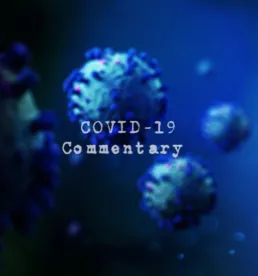The mechanics of litigation in the federal courts have changed dramatically over the course of the past two months. Intellectual property enforcement is certainly not immune to these changes. Now that stay at home orders have been in effect in many states, enforcing copyright, trademark and other intellectual property rights through litigation involves a different set of considerations. Here are a few of the more significant considerations you can’t afford to ignore:
Pre-suit Investigations
Copyright and trademark enforcement actions in many cases can be won or lost during the investigation phase. But now the ability to investigate brick-and-mortar operations and obtain samples of infringing products can be limited. Fed. R. Civ. P. 11 requires that allegations be “formed after an inquiry reasonable under the circumstances.” As a result, intellectual property rights owners face additional challenges in obtaining potentially infringing goods, sampling and testing those goods, and conducting a full and complete pre-suit investigation in light of the closure of non-essential businesses and stay at home orders. To address that challenge, parties may need to rely more on online services to obtain products for inspection and work remotely with clients and experts where testing and sampling is necessary.
Filing and Serving Complaints
Although many, if not most, of the federal courts are closed for in-person purposes, the courts remain open to accept electronic filing. While new cases continue to be filed, it is important to develop an effective and efficient strategy for achieving service on the named defendants. Under Fed. R. Civ. P. 4, service of process typically requires personal service. Many of the recent stay at home orders have required the closure of non-essential businesses, and as a result achieving personal service of the summons and complaint may be difficult. To that end litigants should consider alternative options, including planning on additional time for achieving service (although Rule 4(m) requires service to occur within 90 days, the court may extend the time for service for good cause shown), proactively seek a waiver of service where possible (Rule 4(d) allows defendants additional time to respond to the complaint after waiving service) or consider whether a motion for substituted service under Rule 4(f)(3) may be possible. Intellectual property rights owners are familiar with the challenges of serving anonymous defendants, especially those involved in online businesses. Regardless, litigants should count on the possibility of requiring additional time to effect service.
Requests for Expedited Relief
Both the Lanham Act and the Copyright Act provide for expedited relief in the form of temporary restraining orders, preliminary injunctions, and the like in certain cases for copyright infringement, trademark infringement and counterfeiting. However, these are extreme remedies granted on a finding of irreparable harm, and IP rights holders should closely consider what is irreparable in light of the present health emergency. Although the courts generally remain available to hear motions on an emergency basis, resources are limited and litigants should consider whether the harm they face is truly irreparable or whether the harm may be adequately compensated through money damages. In a recent case, when addressing a motion for a temporary restraining order involving the sale of counterfeit products, the U.S. District Court for the Northern District of Illinois balanced the harm alleged by Plaintiff in the form of lost sales against the statewide and national health emergencies due to COVID-19 and denied the request, stating that “If there’s ever a time when emergency motions should be limited to genuine emergencies, now’s the time.” See Art Ask Agency, Case No. 20-cv-166 (N.D. Ill.) (Mar. 18, 2020 Order).
Document Collection and Discovery
Document collection and production, like other aspects of litigation, is likely to be more challenging in light of court closures and stay at home orders. For example, lawyers presently have less access to clients’ physical offices and their documents, and as a result the document collection process may take more time. There are, however, a number of options to facilitate remote document collection, including use of cloud-based repositories, screen shares with document custodians, and secure electronic transfers of relevant documents. Likewise, parties can utilize document review services to complete document review and production in a remote work environment. Given that document collection and production activities will continue during court closures, parties will need to critically consider how to efficiently and effectively manage this process remotely.
Depositions
Courts have taken steps to encourage remote depositions in an effort to move cases forward during the stay at home order period. For example, a number of jurisdictions have authorized remote administration of the oath that in turn facilitates the conduct of remote depositions. Likewise, many national court reporting agencies have platforms capable of conducting effective depositions, and offer complimentary tutorials on those platforms. Parties should give thought to how to effectively prepare witnesses by remote means, handle presentation of exhibits during the deposition (either electronically or in paper copies), confer with witnesses and clients, and take steps to ensure a final video transcript that is usable at a subsequent trial or hearing.
Hearings, Mediations and Trials
This is an area where parties must closely follow specific court orders in their particular jurisdiction and venue. Nearly all in-person civil court appearances (which include jury trials, motion hearings, and mediations) have been suspended, but the length of the suspension and the process for rescheduling these in-person events will vary significantly by jurisdiction and depend in large part on the scope and extent of the public health emergency in the particular state or jurisdiction where the case is located. As a result we as litigants will need to closely follow the status of court closures and both general and case-specific orders on in-person trials and hearings. In many cases, however, courts and mediators are conducting hearings and other proceedings either telephonically or by videoconferencing. As with any case, understanding the needs and capabilities of the court will be extremely important.
At the end of the day, protecting and enforcing copyright, trademark and other intellectual property rights faces a new normal, and both parties and counsel will have to adapt to these rapidly changing circumstances as well.




 />i
/>i

